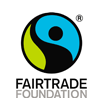We support small scale farmers and workers who are marginalised from trade in a variety of ways and carefully monitor the impact of Fairtrade on these communities.
Fairtrade as a certification is much more than merely an environmental certification, it is the only and best ethical and social certification that really ensures social and environmental, ethical and economic impact, and therefore human impact.
Enrique Calderon, Coffee Farmer, Coopeagri
As a certification scheme, the Fairtrade Standards, which demand minimum commitments and requirements such as on pricing, provide one of our primary and also most visible tools for empowering small farmer and worker organisations. Read more about the Fairtrade Standards.
But beyond the standards and certification, the Fairtrade system also provides direct and indirect support to farmers and workers and their organisations to deepen social and environmental sustainability.
Fairtrade has a committed programme of Monitoring, Evaluation and Learning (MEL) that supports internal learning and improvement and helps build the evidence base for assessing the difference we make. Read about how Fairtrade monitors and measures impact.
This programme is based on our ‘Theory of Change’ and ensures we gather the right data and information on what difference Fairtrade makes to the lives of farmers and workers.
The difference that Fairtrade makes
Emerging evidence through impact assessments has found that Fairtrade can make a significant difference to farmers’ and workers’ lives.
Our theory of change
A ‘Theory of Change’ describes the change that an initiative (organisation, network, project, etc.) wishes to see in the world and its understanding of how it will contribute to that change.
How Fairtrade monitors and measures impact
Fairtrade has a committed programme of Monitoring, Evaluation and Learning (MEL) that supports learning and improvement.
Where Fairtrade needs to do more
Fairtrade is an evolving system committed to learning how our approach can improve to make a bigger difference for farmer and worker communities in developing countries.
Evidence and learning
As part of our commitment to understand the impact of our work better, the Fairtrade system commissions 2-3 outcome and impact evaluations each year.
The history of Fairtrade
A look back over the Fairtrade timeline, from when it was established in 1992 right up to the 25th anniversary of the FAIRTRADE Mark in 2019.
